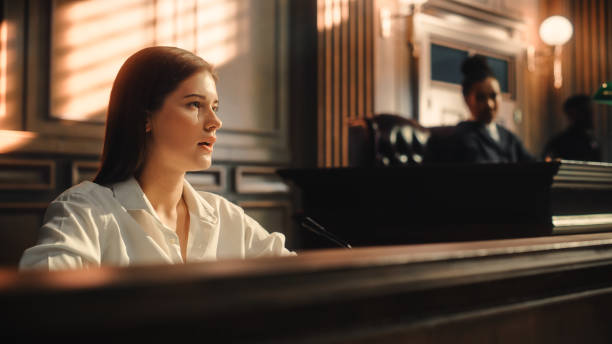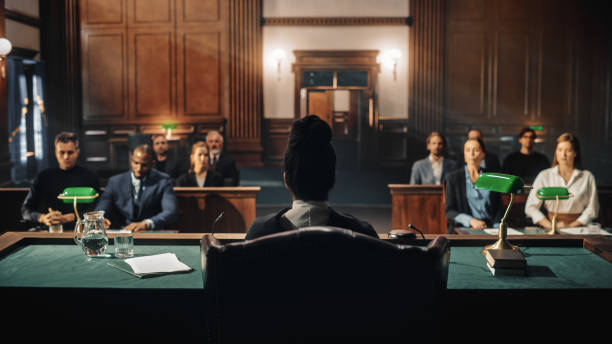Divorce in Virginia: Does Adultery Matter?
It’s no secret that adultery is one of the leading causes of divorce. Many people who call me for advice want to know what the legal consequences are in a Virginia divorce when one spouse commits adultery. The answer is that there are some, but the impact is probably less than most people imagine.
Although there is a criminal statute in the Virginia Code that makes adultery a misdemeanor, it is probably unconstitutional. It is not enforced. No cheating spouses are sent to jail for infidelity in Virginia.
Under Virginia’s divorce law, there are two things different in cases where adultery can be proven. The first is that, regardless of whether the parties have children, a divorce can be granted without them being separated for a year. It is possible to obtain a divorce at any time if one party has evidence and can get a trial date.
Real Life Examples
This is largely theoretical, at least in Hampton Roads, because it can be difficult to get to trial quickly enough to take advantage of the difference. Most cases settle. Getting the divorce done faster usually confers little advantage and adds to the overall cost.
In the last few years I have done it once. The wife and her boyfriend documented their sexual relationship through photographs and video. All other issues were resolved through an agreement. Both parties wanted the case to be over quickly. So we had the wife authenticate the photos and the judge granted the divorce after only a few months of separation.
The second and more significant difference is that spousal support must be denied to the guilty spouse. Spousal support is almost always paid to the wife. Wives are most affected by this feature of Virginia’s divorce law. There is a loophole, but usually provable adultery means no spousal support.
In one case, where I represented the husband, the wife demanded that he pay her spousal support for years.The total over time would have been significant. She lived openly with her boyfriend. We had a private investigator document their behavior with observations and really clear video courtesy of a helpful neighbor who did not approve of the situation. Once I disclosed this evidence to the wife’s attorney, she dropped the spousal support demand.
Bear in mind that the standard of proof is higher than for other claims. So really solid evidence, like what we had in the two cases I’ve mentioned, will be needed. Proving a relationship is not enough by itself. There must be sufficient reason to believe that the parties are actually engaging in sexual relations.
See the video about Divorce in Virginia: Does Adultery Make a Difference?
When Spousal Support can be Awarded Despite Adultery
In Virginia, a spouse guilty of adultery may be denied spousal support. The spousal support statute, Virginia Code Section 20-107.1, says that “no permanent maintenance and support shall be awarded” to a spouse who is guilty of adultery. The word “shall” means the judge has to apply the rule. If adultery is proven, the judge’s hands are tied and no spousal support can be awarded.
There is, however, a loophole. The same code section includes an exception. The next sentence says: “However, the court may make such an award notwithstanding the existence of [adultery] if the court determines from clear and convincing evidence, that a denial of support and maintenance would constitute a manifest injustice, based upon the respective degrees of fault during the marriage and the relative economic circumstances of the parties.”
Manifest Injustice
The phrase “manifest injustice” is very vague. It could be loosely translated as meaning “really unfair.” So, if it would be “really unfair” to deny spousal support, the guilty spouse can still get it. To give the judges some further guidance as to what should be considered “really unfair,” the legislature directed them to look at “the respective degrees of fault” and the “relative economic circumstances of the parties.” So if the adulterous spouse can show that, even though they were bad themselves, the other spouse was even worse AND the other spouse is significantly better off financially, the judge can award spousal support despite the adultery. It is critical to understand that the exception is not mandatory. The judge can, but does not have to, grant spousal support despite adultery.
This code section illustrates the difference between two kinds of authority the legislature gives judges. In some cases, the judge has to follow the rules. If certain things are proven, the judge must apply the rule. The first section of the rule to not provide spousal support to cheating spouses is called a “non-discretionary” decision.
The other kind of authority entrusts the judge with some leeway. The manifest injustice exception is an example of this. The code says that if the guilty spouse can show they are less at fault and the other party is better off financially, the judge “may” award spousal support despite their misconduct. The key word is “may” which means the judge can weigh the facts and make a judgment call. This is a “discretionary decision.”
It is easier for lawyers in a case to predict the outcome when the decision is non-discretionary. When the judge has discretion however, it can be very challenging to predict what they will do.
Divorce in Virginia: Adultery and Child Custody
Some people want to know whether one spouse’s adultery affects who gets custody of the children in a Virginia divorce. This is one area where gender bias can make a difference.
Strictly speaking, the fact that either parent is engaging in an affair is not relevant to who should have custody. However,in my experience, it can make a difference. Despite the fact that the presumption favoring mothers having custody has been abolished, the gender assumptions behind it have not faded away. The mother normally has a significant advantage in a custody battle. Nevertheless, that same set of gender prejudices can work against the mother if she is involved in an affair.
The father will have a high chance of getting custody, especially if the mother places the children in a situation where they live with the boyfriend or even having the boyfriend stay overnight. She has a risk that at the pendente lite hearing, the judge will order her to move out of the marital home if she’s carrying on an affair, granting custody to the husband. Anything that casts the wife in a promiscuous light will hurt her chances of custody. Adultery on the part of the husband clearly doesn’t help but it doesn’t seem to hurt as much as adultery damages the wife’s chances.
So if there is a custody contest, both parties are better off cooling their passions and waiting until the issue is settled before starting another sexual relationship.
Divorce in Virginia: How Can I Prove Adultery?
The easiest case I ever had was one where the wife had an affair. Her low-life boyfriend took video of them having sex. When she dumped him for someone else, he sent the video to her husband. Having evidence like that is very rare.
I had another case where the wife was involved with a woman. She and the woman took photos of themselves engaging in cunnilingus. In the case of homosexual extramarital relationships the terms are either sodomy or buggery rather than adultery. However, the legal consequences of a Virginia divorce are the same.
So, if you are not lucky enough to have undeniable photographic or video evidence, how can you prove that the spouse committed adultery?
Back in the 1950′s, before no-fault divorce, proving adultery was more common than it is now.
The method lawyers used then is still used today:
Private Investigator
You hire a private investigator who observes and documents the cheating spouse’s behavior.
The investigator’s observations of the passionate kiss in the parking lot followed by the stroll into the hotel holding hands are circumstantial evidence.
Public displays of affection are helpful but not enough by themselves. However, if the investigator then sees them go up to the room and not come out until the next day, you have enough to meet the requirement of clear and convincing evidence.
One of the things you should look for in an investigator is the ability to take photographs or video that can be used in court. If it’s out-of-focus, or too dark or only shows the car, they haven’t really earned their fee.
Often people call and say they have emails or text messages they have somehow captured. That sort of evidence can be helpful but not enough by itself. You really have to have someone observe them under circumstances where the only reasonable inference is that they are engaging in sexual activity, specifically oral, genital or anal intercourse. So save that evidence, but remember that you will have to put it together with evidence of them being alone together for some period of time.
Paramour Testimony
The other option is to force the paramour to testify. If they are married, they will take the fifth amendment and refuse to answer the questions. But if they aren’t, I have known judges to rule that they have to answer the questions.
The paramour’s testimony will be sufficient unless there is some strong reason to doubt their honesty.
Sometimes there are friends or relatives of the cheating spouse who are willing to testify about admissions the spouse made to them or behavior they witnessed directly. It is not uncommon for someone close to the cheater to disapprove enough to provide the necessary evidence.
Pleading the Fifth about Adultery in a Virginia Divorce
No one wants to be interrogated about adultery. Even someone who has never done anything adulterous will find the questioning offensive. It is quite common for people to invoke their 5th amendment right to remain silent in the face of such questions. The Former Speaker of the House, Newt Gingrich, invoked the 5th amendment in his divorce. Had Former President Bill Clinton would probably not have been impeached and lost his Arkansas law license.
Virginia Code Section 18.2-365 makes adultery a misdemeanor in Virginia. It says: “Any person, being married, who voluntarily shall have sexual intercourse with any person not his or her spouse shall be guilty of adultery, punishable as a Class 4 misdemeanor.”
Is it Constitutional?
There is considerable doubt whether this law is constitutional. The U.S. Supreme Court in the case of Lawrence v. Texas held that sodomy laws are unconstitutional. And the Virginia Supreme Court in Martin v. Ziherl held that Virginia’s law criminalizing fornication was unconstitutional. It is easy to see adultery laws being the next to be held unconstitutional.
The law is still on the books and prosecution for violating it, however unlikely, is possible. So if you are married, you cannot be compelled to answer questions about sexual activity with people other than your spouse. The issue then becomes whether you can be asked about non-sexual activity with the suspected paramour. For example, a question about whether you entered a hotel with the paramour does not ask about sexual activity directly. However, it comes close enough that you should be able to decline to answer it. In contrast, a question about whether you knew the person or had lunch with them would be more likely to be permissible. The argument is that such questions provide “links in a chain of evidence” that could support the inference that adultery occurred. The more solid the link, the more likely it is you will not have to answer the question.
Experience and How To Navigate Adultery in Court
I like to subpoena the paramour and ask about it. In one case, the paramour was unmarried. You will notice that the law refers to a person who, “being married” has sexual intercourse. I took the position that because they were not married, they could never commit adultery and therefore had no fear of prosecution. The commissioner in chancery hearing the case agreed and required the paramour to testify to adultery. In another case with a similar scenario, the paramour invokedthe 5th amendment during their deposition claiming they might be prosecuted for “conspiracy to commit adultery.” The case settled and we never got a ruling on whether that objection was valid.
The takeaway is that you can avoid the indignity of questions about sexual misconduct by invoking your 5th amendment rights. The party seeking to prove adultery will have to find another way to prove it.







